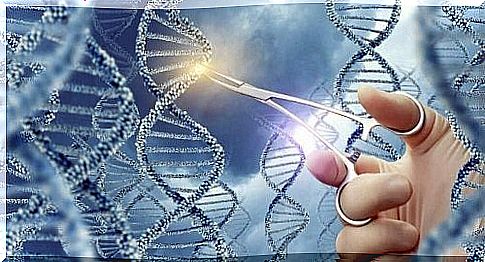Pan-Cancer Genomic Study: Why Do Tumors Occur?

Cancer is a common problem worldwide. About a third of the world’s population will develop malignancy at some point. Being a major cause of death, the genomic study Pan-Cancer is trying to put an end to this disease.
There are different factors that lead to cancer in humans. We will talk about these in detail below. However, he is interested in how, from a certain point of view, the complexity of human nature can lead to mutations and errors at the cellular level.
Some philosophers and scientists believe that the appearance of genetic mutations that cause cancer is written in our DNA. Specialists expect these mutations to occur because we have such a complicated body and DNA.
Taking these aspects into account, the scientific community is studying the genetic causes of cancer. This fact is the basis of the Pan-Cancer genomic study and the article published in Nature .
Nature has published various articles on this topic in the past, with over 20 being published simultaneously. The group of researchers reports that they analyzed more than 2,500 subjects with almost 40 distinct tumors.
Scientists from different countries have joined the genomic study Pan-Cancer, part of the “Human Genome” project. In total, 1,300 specialists worked with 13 supercomputers to process the data.
Why is there cancer?
Cancer is a multifactorial disease. In other words, excluding some exceptional cases, we cannot identify a single factor that generates malignancies. The Pan-Cancer genomic study started from this premise, the objective being the sequencing of genes that can evolve into tumors.
Scientists have tried to discover how DNA changes, culminating in the process of uncontrollable cell development and multiplication caused by cancer.
Genetic mutations can be associated with over 100 distinct factors. These include:
- Lifestyle: Tobacco, alcohol and unbalanced diets are factors that can be changed, known for their carcinogenic potential. Smoking is significant.
- Age: Aging weakens the ability of cells to prevent cancer, leading to their uncontrollable multiplication.
- Genetic inheritance: Humans can inherit genetic mutations. Parents can pass on such mutations to their children.
- Luckily: DNA can mutate for unknown reasons. This type of mutation is currently attributed to luck, but the truth is that scientists do not know their real cause. Almost 60% of tumors fall into this category.

The “Human Genome” Project
The Pan-Cancer genomic study is part of the “Human Genome” project, which began in 1990. It is an attempt by the international scientific community to unravel the mysteries of human DNA.
The “Human Genome” project was due to end in 2005, but it was completed two years earlier. In 2003, researchers announced worldwide that they had managed to decode all the genetic information of the human species. Thanks to this sequencing, progress has been made in the Pan-Cancer genomic study.
Knowing all about human DNA, we now have the ability to investigate which parts of it are altered by each disease, including cancer. Many smaller studies, derived from larger ones, fail to obtain the necessary funding to continue.
Economic problems have also been identified in the latest publications. Researchers have complained that they are not being rewarded for extra work and that they do not know where they will be able to get funding in the future.
However, despite these difficulties, the “Human Genome” project was a step forward in terms of:
- Complete knowledge of human DNA
- Storing and sharing information among scientists
- Improving techniques for analyzing genetic information in medicine
- Discussing the legal aspects of this knowledge

The benefits of the Pan-Cancer genomic study
The scientists involved in this study know that such progress is important, but cancer treatments will not change overnight. The benefits of the Pan-Cancer genomic study will be seen in the long run. In any case, it is not possible to advance in the absence of these publications.
Genetic information will allow us to adapt the treatment of each patient. We will move into an era of personalized cancer therapies, with drugs tailored to individual patients. Early identification of the cancer will also be possible, perhaps with the help of liquid biopsies. Specifically, if cells that begin to undergo mutations release altered DNA into the bloodstream, we will have techniques to identify it.
As usual, there are legal and ethical issues. Will health insurance companies have the right not to serve people who carry cancer-related mutations?
Although we need to put in more effort, we have already taken many steps forward. Soon, we could fight cancer on an equal footing and, why not, defeat it before it causes harm.









